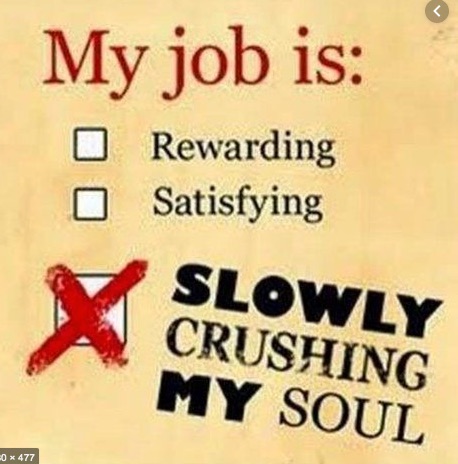Patience is a virtue. This might be especially true for career change. And even more true the older you get.
A client contacted me almost 2 years ago at age 50+. She’d been in the same office job for 25 years and needed to make a change due to burnout and depression from staying in a stagnant position for so long. Her self-confidence was shot!
I started by assessing her needs, priorities, and preferences. She was not willing at her age to go back to school for further education, so it was a question of identifying and defining her strengths, skills, and interests to match attainable jobs.
A long and winding road
Although she had a passion for working with pets, her lack of credentials in that field would consign her to low skill, low pay jobs. She seriously considered that option to preserve her health and sanity and even applied at a few places. In the end, she wasn’t willing to take such a significant pay cut.
So, we identified jobs in both the public and private sector that would recognize and reward her for the administrative skills used in her office job. I modified her resume accordingly. I taught her how to complete online government applications. After several false starts, she got the hang of it. After 6 months or so, she started getting call-backs for interviews related to HR Assistant, Collections Officer, Client Support, Client Services, Payroll Officer, and similar jobs.
Interview anxiety
Learning to interview was another hurdle to cross. She had not been to a job interview in 25 years! Just the thought of one filled her with worry and anxiety and, for various reasons, she cancelled the first few interviews.
Over the next year, she kept getting invitations because her skill set had real value in the job market. I pointed this out to her repeatedly while continuing to coach and guide her through the interview process, especially with respect to answering situational questions and telling compelling stories that gave a picture of her in action solving problems relevant to an employer’s job description.
Slowly but surely her confidence increased. She made it through a few interviews without her nerves getting the best of her. This past summer, she was invited to a hiring process as a Screening Officer with a government agency, which involved many challenging steps that I successfully guided her through. She also had to provide references from her employer, a prospect that triggered another round of concern, but we navigated through that obstacle.
Happy ending
Six months after the interview, she was offered the job. When she gave notice, her employer went to great lengths to retain her. But she stuck to her guns and started her new career in January this year: “I can’t tell you how happy I am to try something new. Your assistance has been invaluable! I couldn’t have done it without your help!!!!”
She started this career change journey with little hope but felt she had nothing to lose because her job was literally “killing” her body, mind, and spirit. She was overwhelmed by the prospect of such a significant change.
But she did it! What courage to start, what patience to persevere, what resilience to overcome each obstacle!
JobJoy Smile – Patience Puns
My wife said she’s lost her patience with me.
I told her I’d help her find it.
People who buy turf for their yards don’t have the patience to grow their own
They want instant grassification.
After months of patience and persistence I finally have a nice body.
It fits perfectly in my trunk.
Why do you need patience at the gym?
Because there is a lot of weighting.
Going to a seminar on patience
Can’t wait!
I had my patience tested today
It came back negative









